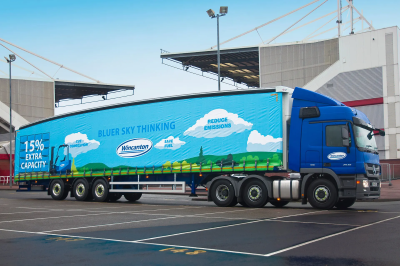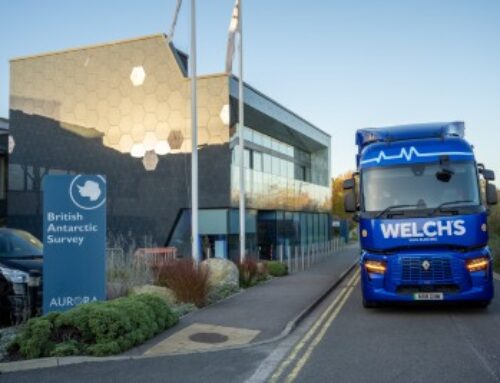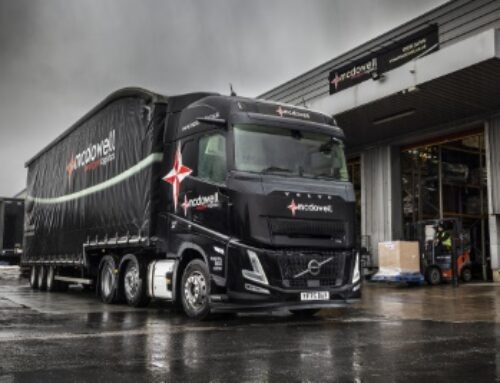Industry reacts to longer semi-trailer rollout
Transport trade bodies have welcomed the announcement by the Department for Transport (DfT) that longer semi-trailers (LSTs) will be permitted for general use on Great Britain’s roads from 31 May, following an extensive 11-year trial of their use.
There are already around 3,000 LSTs within England, Scotland and Wales, operated by more than 300 fleets that have been participating in the trial, including high-profile names such as Stobart, Royal Mail, and retailers Argos, Greggs and Morrisons.
But from the end of the month, any business will be able to deploy lorries measuring up to 18.55 metres in length, enabling the general use of LSTs, which are up to 2.05 metres longer than standard semi-trailers.
The government says the move will help grow the economy, boost productivity and cut emissions from road transport, due to LSTs’ ability to move the same volume of goods over eight per cent fewer journeys.
This, DfT claims, is expected to generate £1.4 billion in economic benefits and take one standard-sized trailer of the road for every 12 trips. The longer trailers are also expected to cause less road wear due to the type of steering axle deployed.
The department adds that fleets using LSTs will be legally required to ensure appropriate route plans and risk assessments are made, to allow for LSTs’ specifications. Operators will also be expected to put additional safety checks in place, including driver training and scheduling, record-keeping, training for transport managers and key staff, and loading of LSTs.
DfT cites results from the trial suggesting that LSTs were involved in around 61 per cent fewer personal injury collisions than conventional vehicles. In addition, they are said to have enabled a reduction in CO2 emissions of 70,000 tonnes over the course of the trial, and 97 tonnes of nitrogen oxides (NOx).
In a statement, the Road Haulage Association (RHA) said: “We welcome these new laws to permit LSTs. We’ve supported these trials and this change will increase productivity, reduce HGV journeys by carrying the same volume of freight in fewer lorries – and reduce mileage, congestion and carbon emissions. We look forward to seeing the impact of these changes on vehicle fleets.”
But the RHA also acknowledged the fact that vehicles using LSTs would still be subject to the existing 44-tonne weight limit that applies to standard trailers, adding that the government could: “go further by increasing the permitted weight to 48 tonnes for moving goods from road to rail. This will be increasingly important when we roll out zero-emission trucks to compensate for the increased weight from batteries.”
Logistics UK said the rollout of LSTs would provide a much needed environmental boost.
“The introduction of LSTs into general service will increase the scope and scale of the goods which our industry is able to transport, increasing efficiencies and reducing the environmental impact of delivering for the UK’s economy,” said Chris Yarsley, the organisation’s senior policy manager for road freight regulation.
“Over the past few years of the trial, our members have proved that LSTs provide operators with a cost-efficient, environmentally prudent alternative to conventional vehicles and our members remain committed to rolling them out across the wider industry as soon as possible.”
Gavin Kirk, supply chain director at Greggs, said: “We welcome the introduction of LSTs into general use. Since 2013, Greggs has been operating LSTs from our National Distribution Centre in Newcastle. We were early adopters of the trial as we saw significant efficiency benefits from the additional 15 per cent capacity that they afforded us.
“We have converted 20 per cent of our trailer fleet to LSTs, which was the maximum allowable under the trial, and these complement our fleet of double-deck trailers. Our drivers undertook additional training to use these trailers and we have monitored accidents, finding that they are as safe as our standard fleet.
“Due to the increased capacity, we have reduced our annual kilometre (km) travel by 540,000 km, and saved 410 tonnes of carbon per year from LSTs.”
Some campaigners are unhappy with the changes, however. National charity Campaign for Better Transport said: “We did a lot of work exposing the dangers and misinformation around longer lorries, so we’re disappointed [the government] is taking this retrograde step.”
The charity’s spokesperson Norman Baker added: “There is already a significant problem with lorries causing damage to pavements, street furniture and parked cars, not to mention the danger to other road users and pedestrians.
“Rather than longer, heavier lorries the government should be investing in rail freight as a safer, cleaner and more efficient alternative with just one freight train capable of removing up to 129 lorries from our roads.”
Announcing the changes, the roads minister Richard Holden said: “Everyone around the country depends on our haulage sector for their everyday needs – from loo rolls to sausage rolls – and a strong, resilient supply chain is key to the government’s priority to grow the economy.
“These new longer lorries will make a big difference for British businesses like Greggs, who will see 15 per cent more baked goods delivered, from tasty pastries to the nation’s much-loved sausage rolls.”














